

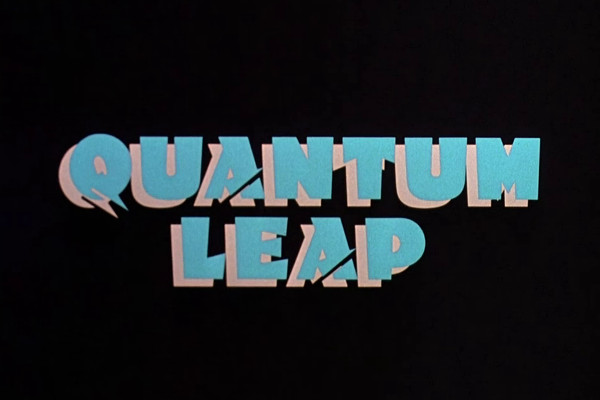
The first season of Quantum Leap aired in the States from March-May 1989, and on the BBC from February 1990. Since the programme ended after five seasons, it's become something of a forgotten series, and so is worth a look back. The DVD of the entire series can be ordered online from Amazon... please join me as I rank the first season from worst to best...
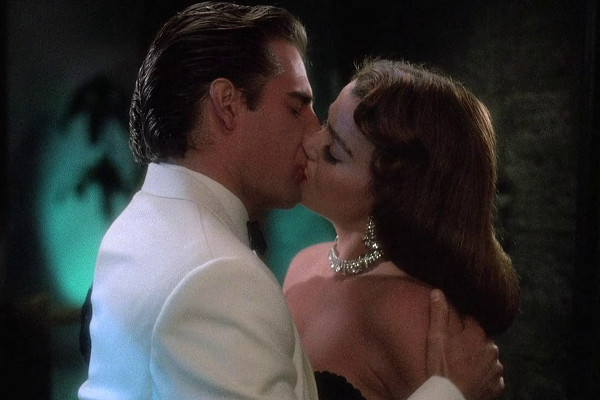
One thing that really holds Quantum Leap back from being a truly respected show is that there's almost no quality control present. Of course, it's a very "worthy", middle-of-the-road series that doesn't take itself too seriously, but whereas some instalments can be genuinely fairly gritty, others fall into pastiche. Here Sam leaps into the life of a private detective, the characters and incidental music around him all unable to resist the predictable Sam Spade send-up that such ventures invariably fall into. It's an uncomfortably flat ending to a short season that often struggles to find its own identity. (As Sam meets a young "Woody Allen" during the adventure, then Sam meeting famous people is also already becoming tired, just eight episodes in.)
All of the first season has poor sound overdubs, with the timbre of voices often changing mid-scene. This closer is no expection, with an incredibly poor post-dub session that sees femme fatale Claudia Christian "sigh" on the soundtrack, despite not doing so onscreen. The sole highlight here is the very first argument between Sam and Al, with genuine hurt feelings... there's not even a reference to the fact that Sam leaps outside his own lifetime for the first point in the series. Although not established until later in the show, Sam was born in August 1953... meaning that, while technically alive during this episode's April 14th 1953 timeline, it would have been inside his mother's womb.
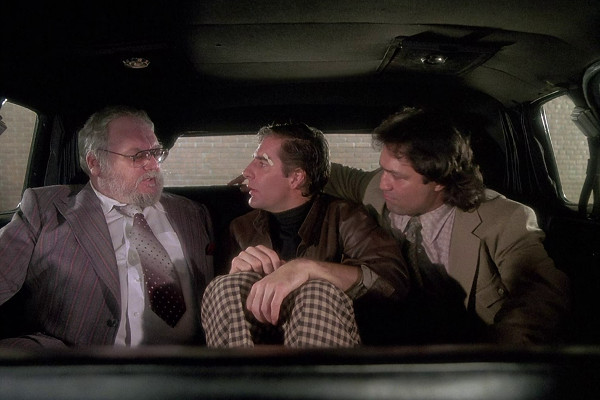
While Quantum Leap often shamelessly steals from movie culture for its various plots, it can't be accused of not acknowledging the source. The incidental music to this boxing-themed episode even jokingly flirts with the Rocky theme at one point. Sadly, the ending of a generally ridiculous episode doesn't share the same wit. Living the life of a boxer, Sam has to have a boxing match with the local area's heavyweight champion. The outcome of the match doesn't actually matter - Sam's bet all his savings on the outcome of Ali-Foreman, so it has no material impact on his fortunes, and the leap demands that a nun has her faith in God restored by Sam trying to win the bout.
An ending where Sam lost the fight, but still showed heart in the face of adversity would have been much less ludicrous than Sam being able to KO a pro boxer... even if he does disrespectfully use his stripper girlfriend as distraction. Another advantage of such an ending, of course, would be that Sam wouldn't have had to have handed over money to a local mob boss (played by Dean Stockwell's older brother, Guy) and thus ensuring his criminal empire can remain funded. Oh boy.
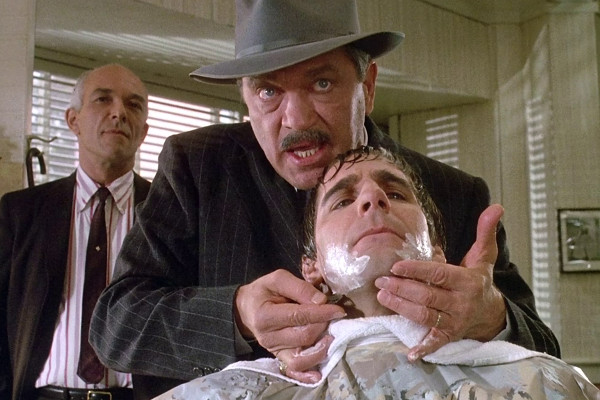
Another fairly flat episode, where the series can't resist playing up the stereotypes inherent in a typical Mafia plot. Rather than leaping into real lives, through a large chunk of season one Sam leaps into a post-modern appropriation of said times. While the series must be congratulated at being able to realistically depict so many varied historical periods, it's a shame that throughout most of its first season it's unable to populate those periods with characters resembling real, three-dimensional people.
The big "twist" here - given away by the title of the episode - is that Sam has a double leap, first as a stud Mafia minion, then a Mafia boss. It's a brief bit of innovation in an otherwise pedestrian episode, but the main intrigue occurs with the preview of the following episode's leap. While there Sam leaps into black limousine driver Jesse Tyler and makes an unwitting conscious decision to take a seat at a restaurant, the leap depicted here has him already sitting down. It's similar to the season finale, which gives away the "Sam leaps into a woman" storyline, despite the fact that it didn't air until fourth in the season two run.
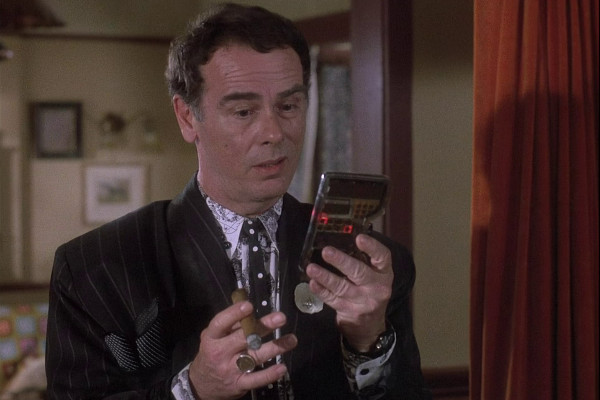
Directed by Ivan Dixon, a man who appeared in five Sidney Poitier movies, and, more significantly for readers of this site, episodes of The Twilight Zone and The Outer Limits. The fundamental point of Sam's leap here is that he gives a young Buddy Holly the inspiration for the lyrics of Peggy Sue... the series thankfully avoiding the temptation for Sam to give him his catchphrase of "Oh boy!" While such a left-field twist is rewarding, it does make the viewer question why they've just sat through 48 minutes of a leap-irrelevant storyline.
Said storyline involves Sam trying to convince an independent tom boy to settle down and marry. Quantum Leap had a tendency to be something of a preachy show at times, with Sam's pure white mindset often making a Jessica Valenti opinion column seem like a transcript of the Nuremberg Rallies. (And I say that as a Guardian reader). Here though, before the character was really developed, we get an oddly sexist Sam informing the "Tess" of the title how women are better at some things than men... "like having babies". It's a line that stands out in stark contrast towards the later development of the series, and the questionable sexual politics of this instalment were writer Deborah Arakelian's sole script for the show.
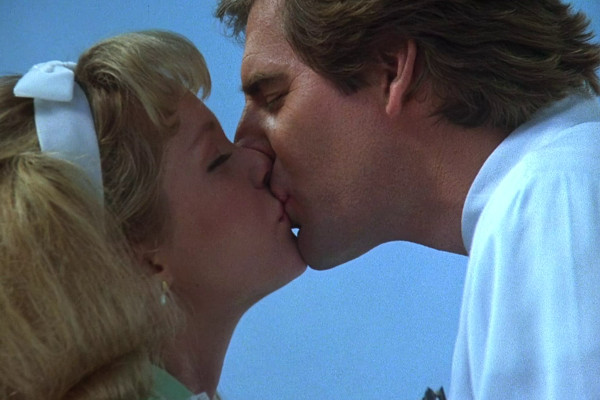
Although Quantum Leap is one of the more modern series covered in these "Worst To Best" articles, it's still 27 years old this March, and so naturally features several elements that may be seen as uncomfortable today. While Camikaze Kid's central theme of domestic abuse is rewarding (albeit diluted when placed in such an otherwise lightweight episode), there are several minor elements that are unsettling in 2017.
It might be just retrospectively awkward moments, like Sam meeting a young Michael Jackson in a public toilet and teaching him how to Moonwalk... even if you're just wondering why Michael didn't wash his hands after a poo, and how he managed to wipe with his gloves still on. It might be larger elements, like Al checking into the mission just to watch a girl getting changed out of her underwear. Dean Stockwell has charm in spades, and so an appearance by Al is nearly always a good thing, yet in modern terms what was then "cheeky" and the work of a "rascal" is today almost a sex offence.
Yet the worst moment comes with the climax. Sam (a 42-year-old time traveller played by a 41-year-old) can only leap if he gives a 16-year-old virgin her first kiss... even worse, said virgin is played by a 12-year-old. The following episode Sam's recap narration even cites it as one of the reasons why he sometimes has "really good days". It's best to put such moments out of mind, and instead concentrate on the moment where Sam and Al sing along to The Everly Brothers' "Let It Be Me", and appear to improvise some "Sammy boy"/"Ally boy" dialogue... one of the most genuinely charming moments in the series.
Lastly, Quantum Leap offers up approximations of its time periods, with no strict adherence to historical accuracy at some points: in the June 1961 setting of this episode, Michael Jackson wouldn't even have celebrated his third birthday, and Dion's "The Wanderer", which plays in the episode (albeit as non-diegetic music), wasn't released until November.
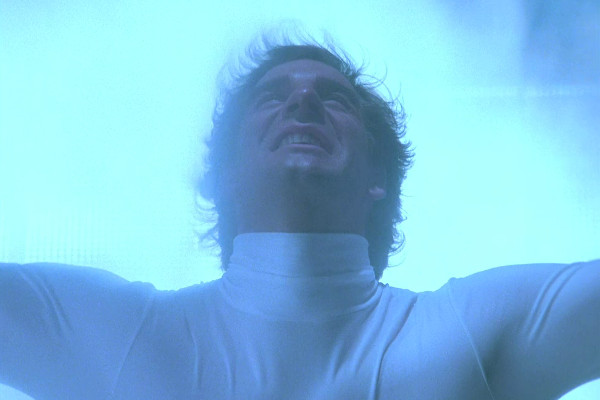
The pilot episode of the series, which effectively introduces the concept, along with the considerable chemistry between Bakula and Stockwell. At 93 minutes it perhaps doesn't hold the attention as well as other instalments, but as an opening to a series it works far better than many other pilots.
What's notable here is that many viewers (myself included) believed that Sam was mentally taking over the bodies of people he "leapt" into, but, while it was made explicit in later seasons, it's also made clear in the pilot and in other season one episodes that it's a full body transference. For some reason this became such a misapprehension that even the writers of the spin-off novels had Sam mentally leaping, despite, in hindsight, all evidence to the contrary here. Lastly, while Quantum Leap can be described as fairly "tame" television, there are still odd lines that defy the "family friendly" set up, such as Al's observation of a baseball team that "they've got about as much enthusiasm as a ten dollar hooker."
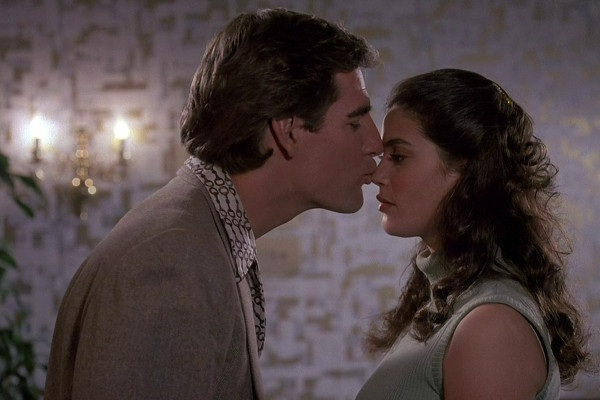
Considering this was just the second episode, then a lot of new ground is broken. Sam meets a woman who jilted him at the altar, and we also find out some more of the nature of the time travel experiment. Quantum Leap - a science fiction series that constantly discussed the existence of God and his part in Sam's leaps - was never a "hard science" kind of show, but discussion of a "theory of a finite universe and therefore finite time" is a rare and fascinating snippet.
All of the scenes between Sam and his estranged love Donna (Teri Hatcher) are engrossing, but the secondary characters tend to be cartoonesque. There's also the revelation that Sam's leaps can change not just accepted time, but create some situations that we've always been aware of... here he unknowingly causes the Watergate scandal.
The most distasteful part of the episode sees Al - fired from the project for giving Sam too much information - getting his girlfriend to sleep with a member of the committee so that he can blackmail him to get his job back. Lastly, there appears to have been little thought given to the consequences of Sam's leap... he occupies the life of a sleazy university tutor who takes advantage of young students, and causes Donna to trust him throughout. As Sam leaps out before they take the return car trip back from the Pentagon, what happens on the journey home?
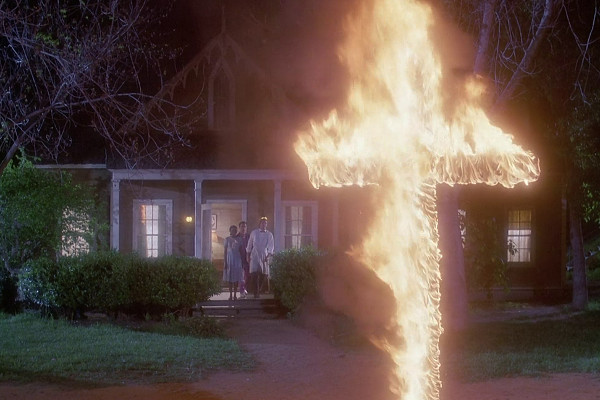
With The Color of Truth, Quantum Leap consolidates its own potential as a series that can be more than just light relief, and into a series that actually has something to say. Often unfairly dismissed as the series doing Driving Miss Daisy, there's really very little in common between the two, other than the basic set up of Sam leaping into a black chauffeur for a grumpy elderly lady. What's more, if Deborah Pratt was inspired by Driving Miss Daisy as a source, then it would have to have been the stage play, which had been running since 1987... the movie actually came out five months after this episode aired.
Quantum Leap can be an overly worthy, preachy show at times, and with a white actor telling other white actors that it's okay for black and white people to get along, and saying trite lines like "Once you've seen the light you cannot go back into the darkness", this can be a little cloying at times. Perhaps even worse is Sam's amazement that he's capable of leaping into a black man's life, as if it's some alien life form - "Of all the people I've leaped into, Jesse should have been the strangest [...] If I can bounce into a black man, the possibilities are limitless." An episode of this type shouldn't need its nature defending by the confirmation that it was written by a black author, but such facts do at least make its more naive excesses more palatable. Despite such reservations, this is a very strong instalment of the series, and the first classic episode.